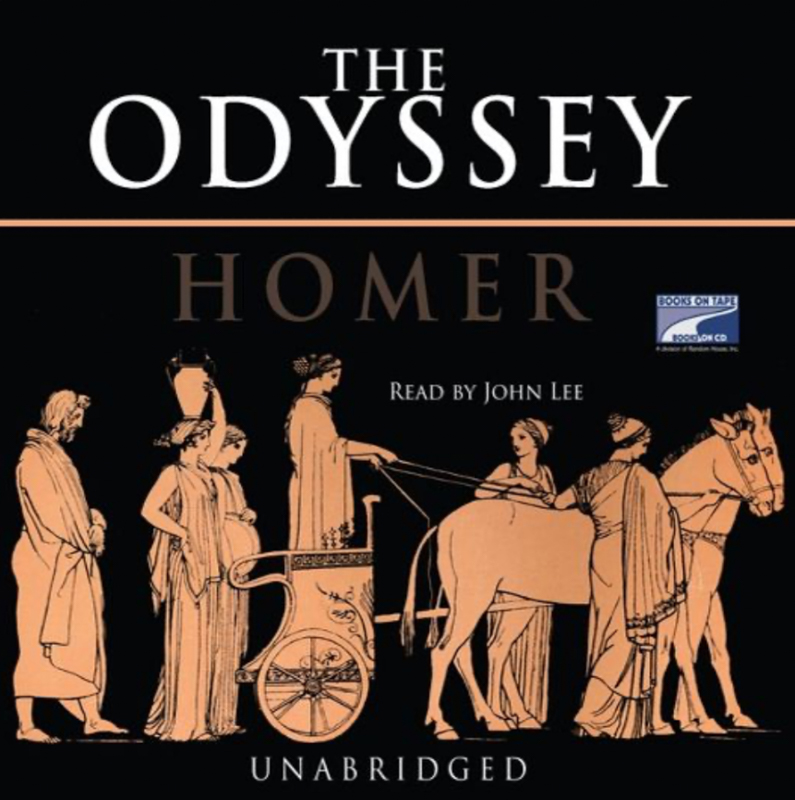Background
Believed to date from the 8th century BCE, “The Odyssey” is attributed to the poet Homer. The Odyssey is an epic poem that follows the Greek hero Odysseus as he attempts to return home to Ithaca after the Trojan War. Over the course of ten years, Odysseus encounters numerous obstacles, including mythical creatures like the Cyclops Polyphemus, the enchantress Circe, and the Sirens, as well as divine interventions from gods like Poseidon and Athena. Meanwhile, his wife Penelope and son Telemachus contend with suitors vying for Penelope’s hand, believing Odysseus to be dead. The poem explores themes of loyalty, perseverance, cunning, and the human struggle against fate. Written in dactylic hexameter, The Odyssey remains a cornerstone of Western literature, reflecting the values and culture of ancient Greece.

My Thoughts
I have read this before but this time I listen to it on audio book. I believe I was able to enjoy it much more this way as I wasn’t forced to sound through all the names and places. If I were to do it again, I believe the best way would be to read it while listening to the narration for the best effect.
However, I can’t really say I enjoyed it. My reading of this work is much more in line with wanting to have a familiarity with the story rather than deriving joy from the process.
Our hero ‘Odysseus’ is consistently helped along by Athena herself and given several reassurances from Zeus. Odysseus is a manly man who is the Greek ideal. Smart, cunning, and extremely strong. If this were the 1980’s, he would be lifting his sword and saying, “By the power of Greyskull!” And then give us our moral for the day. Poseidon is angry with him because he had the nerve to blind the cyclops rather than be eaten like several of his crew. (While tragic in the moment, the loss of so many didn’t seem to be truly felt.) Unfortunately, men are hanging out at Odysseus’s home and are making a play for his wife. During which, they are all eating Odysseus’s food and bullying his staff. His son, Telemachus, is a pansy who can’t manage to throw them out. (In fairness, Telemachus does eventually get the nerve to help out, but he had wait for his father to return and clean house.) Now, does Odysseus just show up and toss them out? Of course not! He shows up as a beggar, gets abused, and then shows up everyone in a test of manhood. Then he kills the suitors, the staff who didn’t seem to miss him, and leaves again to fulfill the prophecy given to him in Hades.
As a modern reader, several of the ideals seem to be very familiar. A sense of justice for one. However, I would qualify it as Disney justice though because only the main protagonists receive justice. Some of the staff continued to pray for the return of Odysseus and they were rewarded, yet this is the exception. Most characters felt the sword of justice rather than rewards.
What was striking to me was the ancient world’s view of the gods. The sacrifices at every meal, the ability to offend one by pleasing another. That must have been a very confusing time to live.
All that said, I’m sure I missed a great deal as there are entire courses on this work. I will have to look into it a bit more.
Recommendation
It is worth the read. Not only is a cornerstone of Western thought, it is a mark of education and culture to understand the names and references.